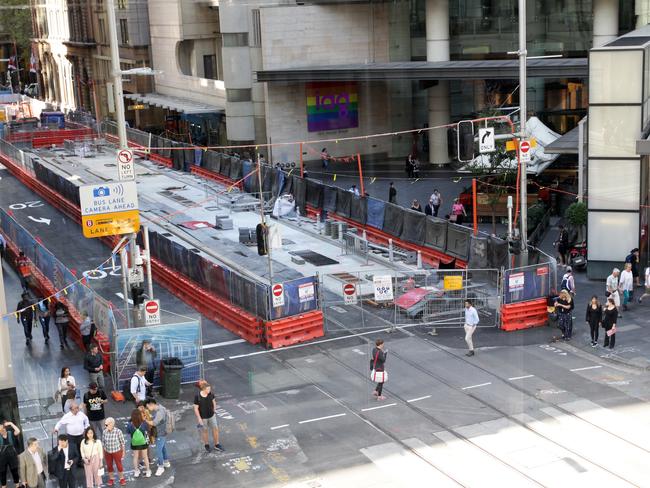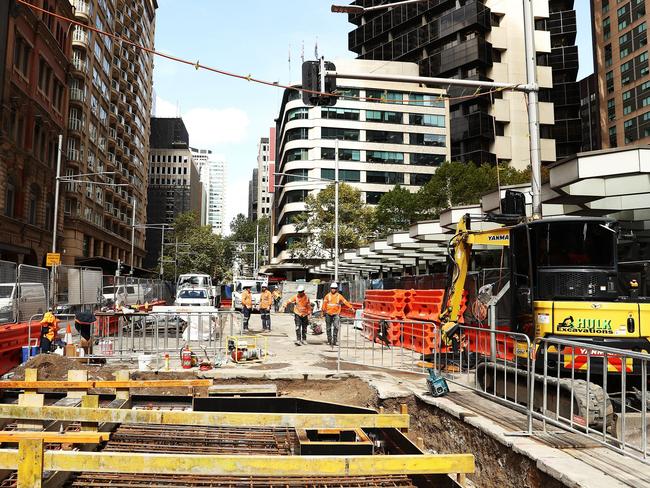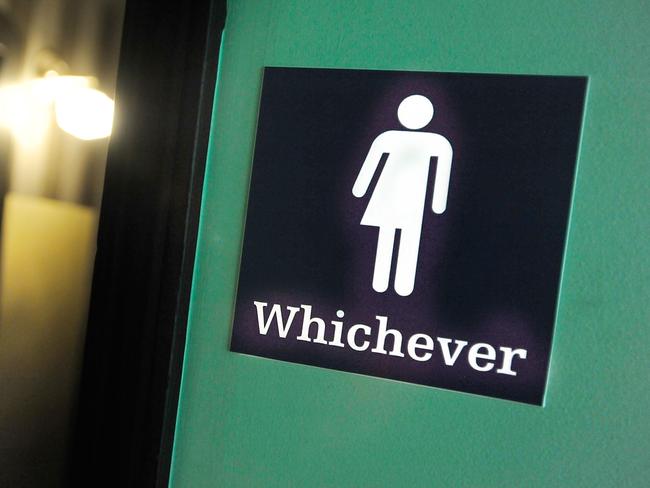Editorial: Light rail a long time coming
OVER the summer, Sydney commuters have become increasingly used to trains running late — and that is if they are running at all, what with a sustained period of cancellations due to widespread sick leave claims by Sydney Rail staff. Now it’s been revealed the whole project is late.
Opinion
Don't miss out on the headlines from Opinion. Followed categories will be added to My News.
OVER the summer, Sydney commuters have become increasingly used to trains running late — and that is if they are running at all, what with a sustained period of cancellations due to widespread sick leave claims by Sydney Rail staff.
So it is appropriate, in a grim, budget-stretching way, that Sydney’s entire light rail project is also running extremely late.
Just to give an idea of how difficult that would be, the current rate following one year’s work on the project is only about 26m of track a day.

Some sections of the project are running slower than others. For example, in the crucial CBD and inner city areas, where businesses and residents have gamely put up with huge traffic and access problems during the light rail construction, only 14km of the required 24.7km of tracks have been finished.
In the very slowest construction zones, certain work is running more than a year past the original deadline.
Sounding a little like Iraq’s Comical Ali during the US raids on Baghdad, who insisted invaders were being repelled despite all evidence to the contrary, a Transport for NSW spokesman claimed that, while there may have been significant challenges during construction, the overall project was still on track for operation in 2019.

“Some utility services extend through multiple construction zones and staging of the work program had to accommodate the complexities of this work,” the spokesman said.
“Despite the challenges created by utilities we are now ‘out of the ground’ in many areas, laying tracks and paving and starting to construct light rail stops. Once the difficult underground utilities work is completed, track laying and finishing works can progress relatively quickly.”
Yes. And there are no military Humvees driving through the Iraqi capital.
Adding to the fun, the cost of the project has blown out from $1.6 billion to $2.1 billion.
There is every possibility, too, that costs may yet increase before the first passenger finally boards our shiny new light rail system.
After all this expense, complexity and congestion, this project had better be worth it.
Reining in the tech titans
In 1987, a proposed Australia Card ID system was abandoned by the Labor government following protests over invasion of privacy and the potential for abusive surveillance.
Thirty years later, we may have systems in place that are arguably far more intrusive than anything imagined by the Australia Card’s architects. According to ACCC chairman Rod Sims, Facebook and Google may hold much more information about users than people realise. Ironically, the government is now calling on Sims to investigate the tech titans and establish their full reach.
An ID card seems almost quaint by comparison.
Topic needs explaining
Schools are generally very alert to the need for parents to be informed of changes.
If a school sports event is cancelled or an excursion is rescheduled, then schools will usually inform parents via website or text — if not by an announcement to students, which can then be passed on.
One Sydney school, however, has dealt with a significant change by remaining silent. The first a science class knew of their teacher’s decision to be addressed as gender neutral was when they were informed in class.

“I don’t think my son’s ever met a transgender person,” one parent of a child at the school said. “I’m sure the same could be said for a lot of other students too. The school really should have, at the very least, spoken with the parents of the students who would be taking the class.”
That is a very good point. Typically, Australians of all ages are very accepting in 2018 of an individual’s gender decisions.
But it helps to meet people halfway, rather than announcing something to youngsters who may not be completely aware of all the issues.


